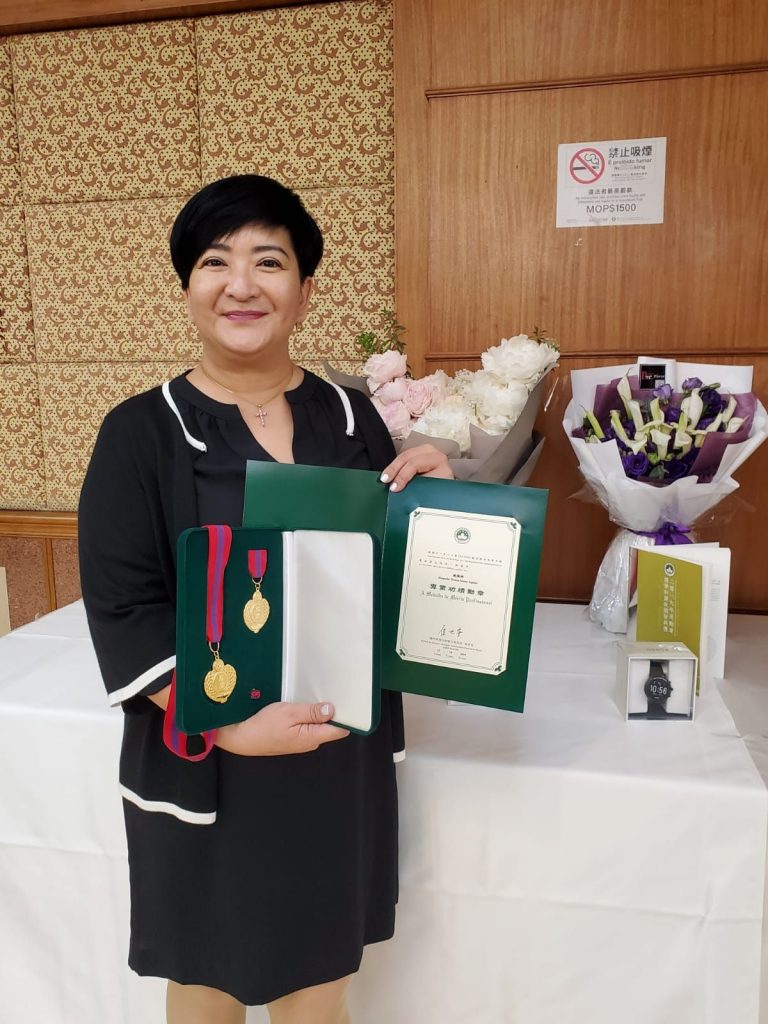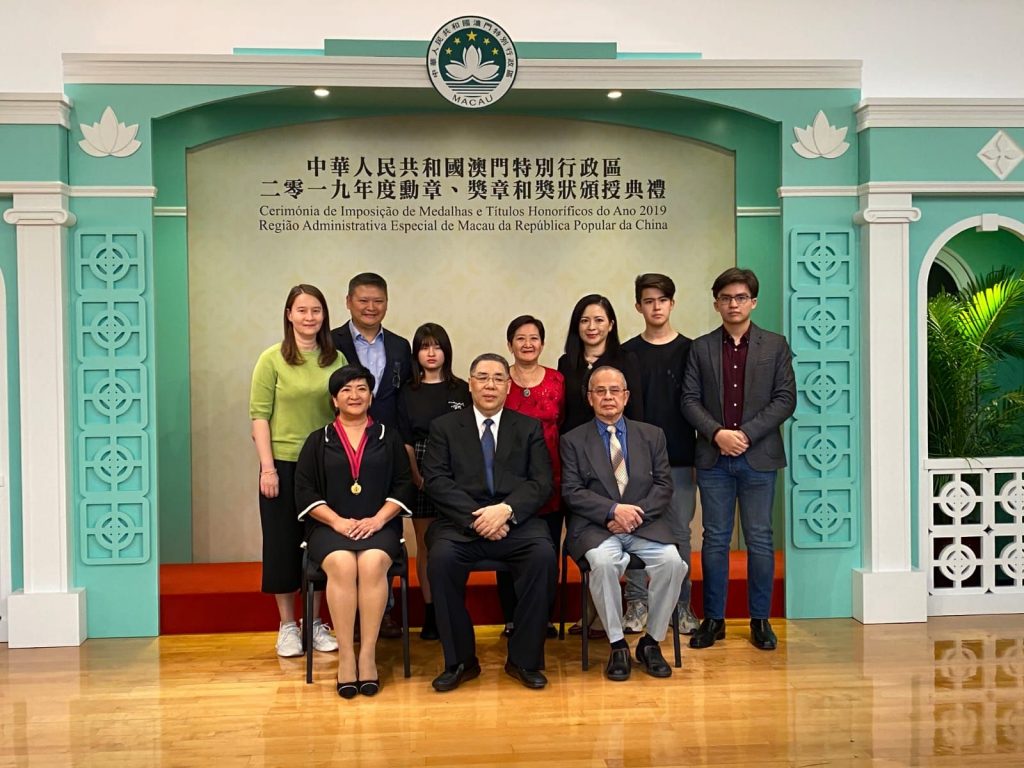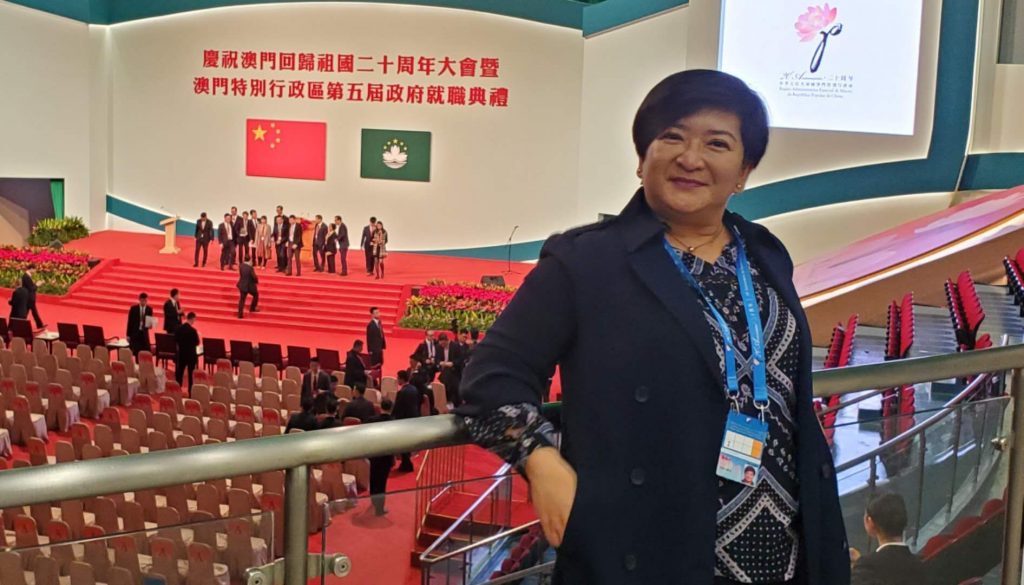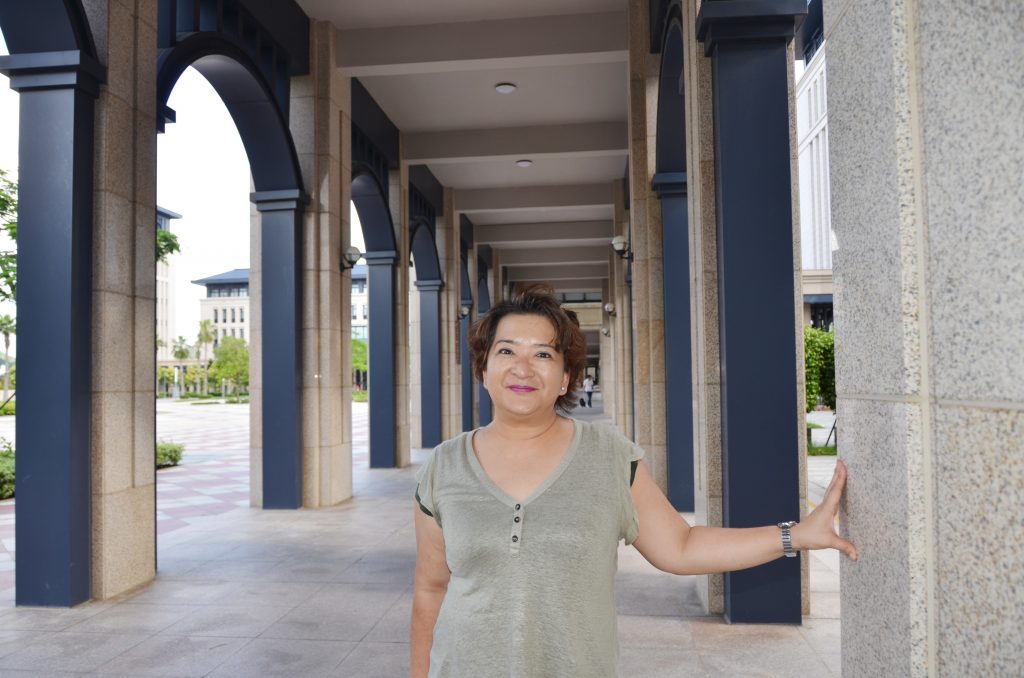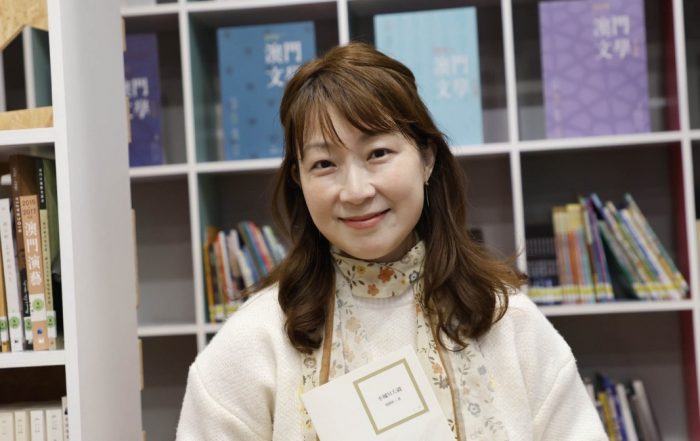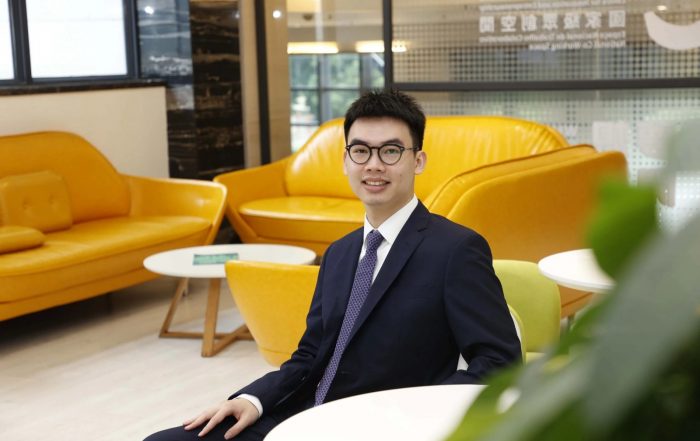Alumna Manuela Teresa Sousa Aguiar (Class of 1996, Bachelor of Arts in Chinese-Portuguese Translation Studies)
Interpretation Advisor of the Public Administration and Civil Service Bureau
Recipient of the “Medal for Dedication” in 2011 and the “Medal of Merit – Professions” in 2019
Mastering a foreign language is not easy. Being able to unveil the essence of one language into another is even more difficult as the interpreter should have profound knowledge and practical experiences. With persistent efforts and commitment to work, Manuela has more than 30 years of experience in translation and interpretation; she has been working as a Chinese-Portuguese interpreter for many mega events, exchange visits between officials, and large-scale international conferences. Apart from working as an interpreter, she has also actively engaged herself in educational work to nurture young talents and contribute to the development of the translation industry.
Being Tied up with Translation
Manuela is a Macanese who was born and raised in Macao. She grew up in a blend of Chinese and Portuguese cultural milieu, and being bilingual in Chinese and Portuguese gave her the advantage to become a successful candidate for the translator position in the civil service. In order to enhance her professional qualifications as a translator, she enrolled in the bachelor’s degree programme in Chinese-Portuguese Translation Studies at UM. When she recalled her fond memories of studying at UM, she said, “As the course was designed for translators in the civil service, the curriculum encompassed a wide variety of professional elements; the academic content taught in the course was very precise and useful for my professional practice at work. At that time, I was working full-time while pursuing my studies, and thus I was able to apply the knowledge learned in classes to my workplace. As the classmates were all my colleagues and we shared many topics in common; therefore, we were enthusiastic to rush from Macao to Taipa to attend classes after work.” Manuela was also very grateful to her two mentors at UM, Prof. Yao Jingming and Prof. Lei Kun Teng. Their enthusiasm in education had inspired her sense of mission in translation. She hopes to pass down her knowledge and experience to the next generation, give back to her alma mater and continue to serve the community.
Turning Points in Life
On December 20, 1999, Manuela worked as a Chinese-Portuguese interpreter for the handover ceremony of Macao, which marked the historic moment of Macao’s return to Mainland China. This was one of the most unforgettable experiences during her career journey and a turning point in her life. As she recalled, “I had been working as an interpreter in the transitional working group of the Macao’s Portuguese government before the reunification. I was very grateful to have the opportunity to witness this historic moment at work. On one hand, I felt very excited about Macao’s return to the motherland; on the other hand, I had also hesitated for a moment on whether I should continue to stay in Macao or move back to Portugal after the handover. I had made my decision to stay in Macao by then as I really enjoyed working as a translator and interpreter; I also believed that the translation industry will have a promising future after the handover.” Twenty years after Macao’s return to Mainland China, Manuela’s efforts in the translation industry were recognized, as she was awarded the “Medal for Dedication” in 2011 and “Medal of Merit – Professions” in 2019 by the Macao SAR Government in recognition of her outstanding achievements and contributions to the development of the translation industry. These awards also validated her decision to continue to stay in Macao after the handover.
Manuela shared her feelings towards the awards with a big smile on her face, “I felt very excited when I heard about the news. However, the purpose of being awarded with the “Medal for Dedication” and the “Medal of Merit – Professions” was different. The “Medal for Dedication” was awarded to recognize my contributions and services to the Macao SAR Government over the years; I will continue to perform my duties with excellent performance to serve the government. For the “Medal of Merit – Professions”, in addition to the recognition of personal achievements, it also represented the government’s affirmation of the entire translation industry. I have been working in this industry for many years and was happy to know that it has been recognized by the government. I would like to express my sincere appreciation for the honor, also hope that it will serve as a powerful catalyst to inspire young talents who are studying translation to work harder as their strengths will be brought into full play in the workplace. Moreover, as ‘Men learn while they teach’, I will continue to share my knowledge and experience with the young talents in order to assist the government and my alma mater to cultivate more high-calibre translators.”
Learning is a Lifelong Process
Manuela believed that an interpreter undertakes an important mission to play the role as a bridge between cross-cultural communications. She described the interpreter’s brain as “medicine cabinets” in Chinese herbal medicine pharmacies. The interpreter should constantly absorb, sort and store new vocabularies into different “medicine cabinets” and extract appropriate vocabularies from different cabinets during interpretation to convey a “prescription” with linguistic and cultural contexts, in order to completely convey the speaker’s message in the source language to the audience. As interpreters, she emphasized that in addition to work experiences and professional trainings, it is also necessary to pursue “lifelong learning” to deepen their knowledge in different subject areas and better prepare themselves for work in the future. “Although I have more than 30 years of experience in interpretation, I still cannot tell you that I am able to interpret every single word in the conferences. As I will receive a lot of information constantly at the moment of doing an interpretation, I need to have a clear mindset and adaptability to understand the speaker’s message quickly and convey the message accurately into another language at the same time. Interpretation is challenging work as we cannot convey the message simply with a literal translation,” Manuela said. Talking about her past work experiences, she mentioned that although she had encountered failures at work before, she still kept on learning from any mistakes and tried to improve her future performance at work; her efforts and passion for work were recognized by the government, bringing her a great sense of satisfaction.
Cultivating Personality Traits and Daring to Step out of one’s Comfort Zone
Although Manuela is busy at work, she still cares about her alma mater and always returns to the university to work as an interpreter or teaches translation courses; she hopes to work closely with UM to cultivate more talents. She said that she enjoys coming back to share and teach junior students; she would not hesitate to share her past life experiences and insights with students to help them find their life goals and direction. In addition to interpretation skills, she has also advised alumni planning to study translation or to join the industry to enhance their proficiency in foreign languages; she has broadened their knowledge in different subject areas and cultivated their psychological qualities. “When I was teaching my students, I always emphasized that interpreters should equip themselves with solid language foundation, clear mindset and excellent cognitive abilities. Students should be physically and mentally prepared and make good use of the excellent Chinese-Portuguese bilingual learning environment offered by their alma mater to enhance their proficiency in foreign languages and cross-cultural communication skills. More importantly, they should also cultivate their psychological qualities, set their goals and understand whether they are interested in working in the translation industry. As interpretation is a profession without regular working hours, students are required to spend a lot of time in preparation for the subjects of the speeches before interpretation; therefore, if you do not have a passion for work, it is quite difficult for you to stay in this industry,” she said.
As the government plans to develop Macao as the trade cooperation platform between China and Portuguese-speaking countries, with the increasing collaboration between China and Lusophone countries, Manuela expressed that the status of Chinese-Portuguese translation and the demand for Chinese-Portuguese bilingual talents have been rising steadily after the handover, which would definitely provide more opportunities for the Chinese-Portuguese bilingual talents. She suggested UM alumni to seize opportunities, broaden their horizons and step out of their comfort zone to look for employment and development opportunities in Portuguese-speaking countries or the Greater Bay Area, which may help them gain valuable experiences, understand their strengths and weaknesses, and create their own career development plan.


